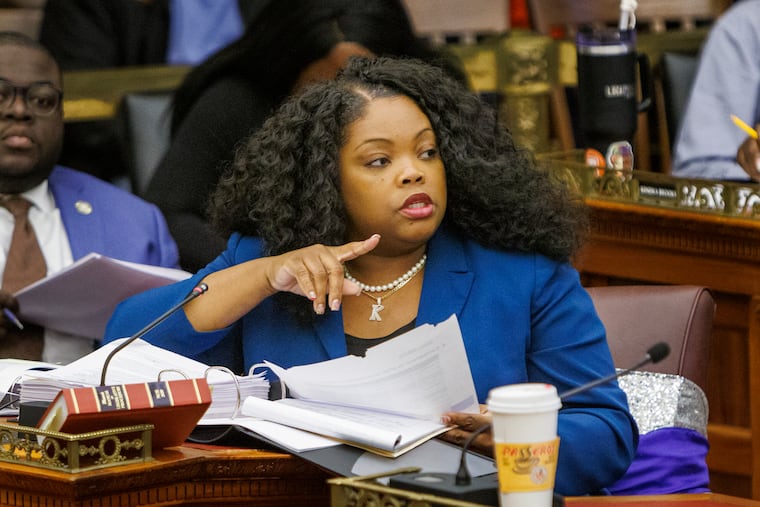Philly’s inconsistent contracting system left some nonprofits waiting months to be paid, report says
Inadequate staffing levels, poor internal communication, and billing issues have in some cases had financially devastating impacts on nonprofits that deliver critical services.

Philadelphia city government’s inconsistent contracting practices and lack of oversight have created a broken system that has left some nonprofits waiting months or even years to be paid by the city, according to a report released Tuesday.
A task force made up of City Council members, officials from Mayor Cherelle L. Parker’s administration, and local nonprofit leaders this week released a 52-page summary detailing the city’s arcane contracting process and offering recommendations to improve the system.
Inadequate staffing levels, poor internal communication, and billing issues have in some cases had financially devastating impacts on nonprofits that deliver critical services like housing the homeless, feeding children in poverty, and supporting victims of domestic violence, according to the report.
“Not getting paid on time and not getting paid the true cost of care is really a practice that’s not sustainable,” said Anne Rice-Burgess, CEO of Episcopal Community Services, a nonprofit that contracts with the city.
Council Majority Leader Katherine Gilmore Richardson, a Democrat who represents the city at-large, convened the task force to study the city’s contracting practices following months of scrutiny of the city’s Office of Homeless Services, which last year overspent its budget by $15 million.
The city’s inspector general found that the agency’s leaders under former Mayor Jim Kenney’s administration deliberately overspent for several years by entering into contracts with nonprofit housing providers that they couldn’t afford. Officials in some cases then delayed paying those organizations until the following fiscal year, when more money flowed into the agency’s coffers.
But Gilmore Richardson said contracting problems were not isolated to that office. Nonprofit providers who hold contracts with a variety of city agencies said they have for years experienced delays in payment or have waited months for their contracts to be finalized, often performing work for the city without actually having a contract in place.
» READ MORE: Philadelphia law overhauling how it contracts with nonprofits to take effect, despite opposition from Mayor Parker
Parker’s administration has acknowledged the city has not made good on its commitments to nonprofits and said it is working to finalize a backlog of contracts.
Chief of staff Tiffany Thurman said Tuesday that the administration has finalized some 600 contracts in just the last few months — many of which predated the Parker administration — and paid out more than $200 million in money owed to third-party service providers. She said the administration is working through a remaining backlog of about 100 contracts.
The report from the task force cited staffing limitations as a key problem affecting how quickly the city can process contracts and said the administration should examine staffing levels across the government. For example, the Law Department unit responsible for assisting city departments with contracting has only nine staff members.
» READ MORE: Overspending in Office of Homeless Services could prompt change to Philly’s contract process
Thurman explained that staffing is inconsistent across the city. She pointed to the Department of Human Services, which holds nearly 300 contracts with third-party service providers and has more than 20 staffers who work on contracting. At the same time, she said, the homeless services office has just two or three employees doing the same.
She said the administration will seek to adjust staffing levels across departments during the budget process this spring.
“It should not be difficult do business and contract with the city,” Thurman said.
Gilmore Richardson said the task force is also recommending the city upgrade outdated technological systems and address a “glaring” lack of centralized oversight of contracting processes.
“This will help to improve service quality,” she said.